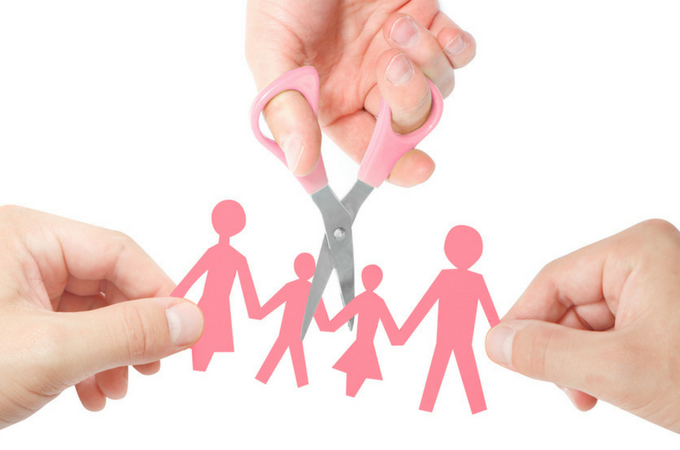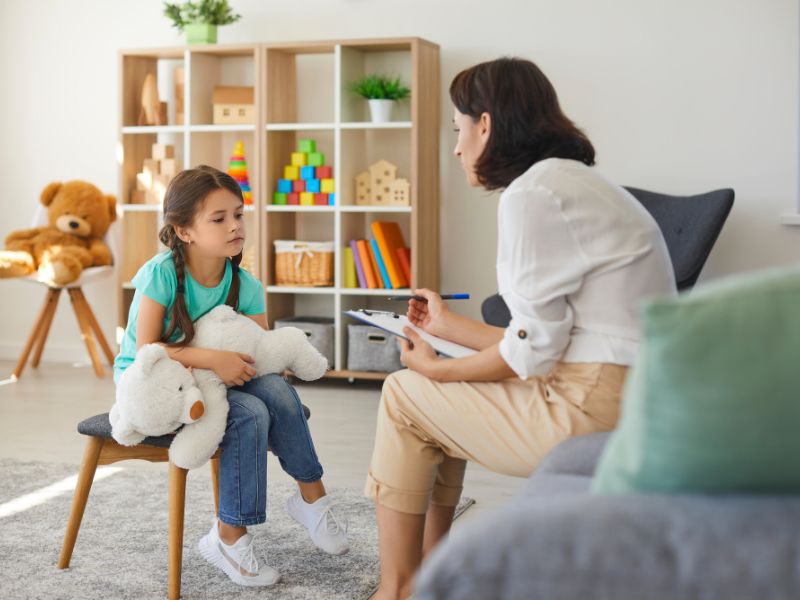It’s Okay – and Even Wise – to Seek Counseling Help for Your Child
We are parents. We are fixers. Therefore we should be able to take care of anything that our kids need, right?
Wrong.
There are times when it is necessary to get your kid some extra help. Yes, parents are amazing… but no, we can’t do it all.
By going to a counselor, not only are your kids getting the specialized help that they deserve, but they are learning from you that it’s okay to seek, use, and need, this kind of help.
Five Times When You Should Consider Counseling for Your Child
1 – Your Child has Extreme Anxiety
Some people have a tendency to worry more than others. But when a child’s anxiety reaches a debilitating level, it’s time to call for backup and look into counseling.
It’s normal for a child to feel nervous before the first day of school. It’s normal for a child to be a little unsure about spending the night at a new friend’s house.
It’s not normal for a child to cry hysterically every night at bedtime because he is worried about going to school. It’s not normal for a child to bite and pick at her fingers until they bleed.
It’s not normal for a child to constantly worry about getting sick or dying.
If anxiety is interfering with your child’s eating, sleeping, school, or social functioning, it’s time to seek outside help.
They need to learn to understand their triggers and, more importantly, coping skills. There are many great counselors in West Michigan who specialize in treating anxiety in children.

2 – Your Child is Struggling in School
The expectations for kids at school keep going up with every grade level and not all kids can easily keep up the pace.
If your child’s teacher has suggested that your child get some extra help with academics, whether that means special services at school or tutoring outside of the school day, please listen.
I know it’s can be hard to accept when your child is not performing at grade level, but don’t let that stop you from getting them extra support.
When kids don’t have a strong foundation of early learning skills, everything else that comes later is going to be more difficult.
3 – You are Going Through a Divorce
Divorce is ugly. Divorce hurts. Even when people divorce amicably, it can still take its toll on the kiddos.
Kids need to have a safe neutral place where they can talk about what’s going on. And it’s pretty much impossible for Mom or Dad to be neutral. You also need to be able to take care of yourself.
Oftentimes, kids feel much better after just having a few sessions with a therapist.
In some school districts, your child may be able to see a counselor or social worker on a short-term basis. Some even offer divorce groups for kids.
Giving your child a safe place to talk things through will help them feel empowered and will help you establish your new “normal.”
SEE ALSO: Divorce is Heart-Breaking Choose a Gentle Approach with Collaborative Divorce Professionals.

4 – Your Child is not Reaching Developmental Milestones
While kids reach milestones at different rates, there are definitely some red flag areas to watch for with your little ones.
If your 3-year-old has any of these characteristics, you should speak with your pediatrician:
• Has very unclear speech
• Does not make eye contact
• Does not play pretend
• Seems to have lost skills he or she already had (such as speech)
• Seems unable to follow simple directions
• Is not interested in playing with other children
For more information about child development milestones for infants through five years old, check out this Developmental Checklist from the CDC.
5 – Your Child’s Issues Interfere with Daily Activities
While this is kind of a generic statement, this is the advice I give to parents all the time.
If whatever behavioral/ emotional issue your child has going on is affecting day-to-day functioning, it’s time to seek outside counseling help.
Sometimes this is hard to pinpoint, as you get used to your child’s daily struggles and it just becomes part of the norm.
Some things to look for:
- Do you have to add extra time to your morning routine to deal with regular emotional outbursts?
- Does your child’s struggles regularly make you late for appointments or outings?
- Is your child coming home from school sick with minor ailments like headaches and stomaches more often than other kids?
- Is dinner time often hijacked because your child is too upset, or can’t eat?
Things to Try as you Consider Whether Your Child Needs Counseling
- Books can be a great resource for helping your child talk about what is going on. There are wonderful children’s books on every topic imaginable from cancer to divorce to anxiety to self-esteem issues. Often it’s easier for kids to talk about the characters’ problems, which can lead to discussions about what is going on with your child.
- Find another close friend or relative for your child to talk with. Sometimes it’s easier for kids to talk with someone other than Mom or Dad.
- Encourage your child to write or draw about how they are feeling and then talk about what they created.
What it boils down to is this:
Trust your gut instinct when it comes to your kids.

